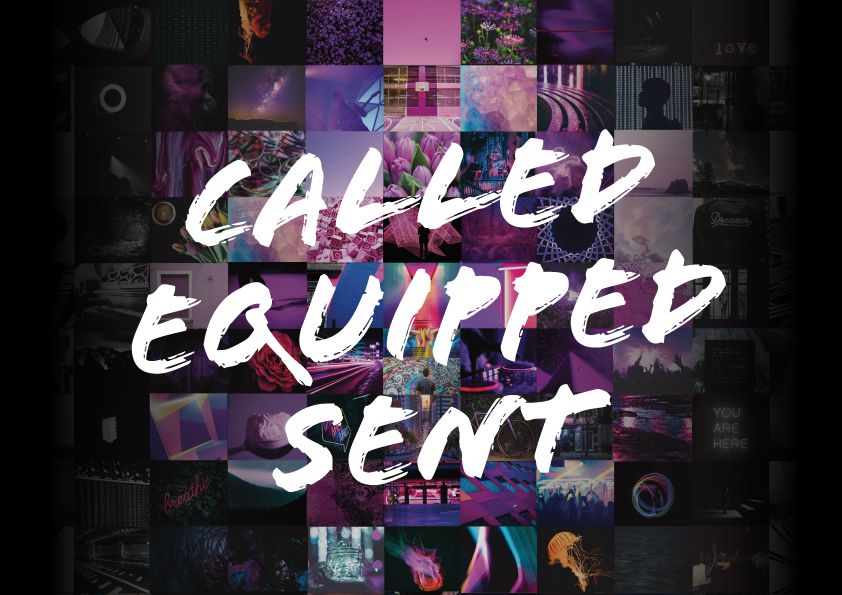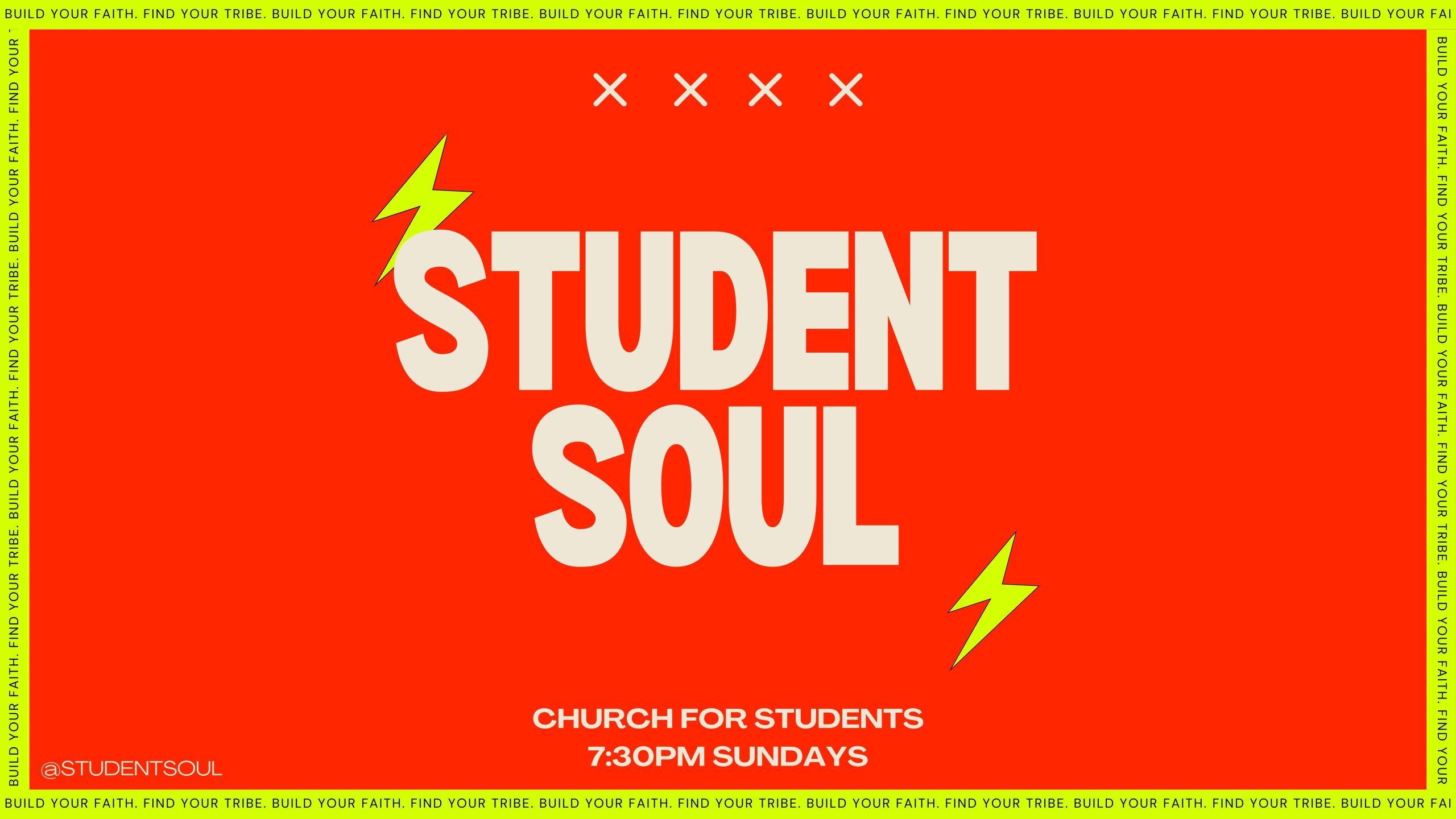Kia Ora & Welcome
Hello and welcome to the 2024 student year!
We are revving to get going. We’re looking forward to meeting you and welcoming you to Dunedin if you’re new. Or catching up and saying “welcome back!” if you’re back for more.
If you’re new to Student Soul, perhaps you’re wondering what we’re all about? There are a few different terms that we use and it may be helfpul to explain one or two of them for you.
You could call us a church, and that would be accurate. We’re a tribe, a community, a gathering of people who are learning what it means to follow Jesus. You could call us a faith community or spiritual community, in that the main thing we focus on is the journey or adventure of in God. But you might also think about us as an organisation that serves alongside students during study – our specialty is building community through core spiritual practices of fellowship, prayer, worship, and mission. And one final way you could think of us – we run events and groups, resourcing students for the journey.
Join us on for our “Welcome to Dunedin Dinner” on Sunday 25th February, at George Street Normal School hall. It starts at 7:00pm.
We will also be hanging out at the Combined Christian Group tent in tent city during O-Week, on Wednesday 21st Feb. Drop by and say hi!
What you need to know about Sunday nights
Time and place
7:30pm Sundays (during Semester)
George St Normal School Hall
989 George St
Dunedin
George St Normal School
989 George St, Dunedin
What can I expect? 🤨
How long does a Student Soul service last for?
We start at 7:30pm and finish by 9pm. That’s our aim.
We often pull it back a little during winter and as study workloads pile it up. When we can, we will finish it up at 8:45pm.
We do like to have the space to go a little longer if it seems important on the day, perhaps as late as 9:15pm. But at the same time, we prefer not to make it too long for no reason! A fast game is a good game as they say!
When should I show up?
Arrive anytime from 7:00pm for a cup of tea and supper!
It’s a relaxed space, so sit and chill or have a chat with some other people while we get ready to begin.
If you can, we’d recommend walking in the door by 7:25pm so that you can be there for the start.
But if you do come late and we’ve already got underway, it’s no stress. You’re totally welcome, and you should just stroll on in get settled.
What’s the culture like?
We do our best to make it a relaxed atmosphere.
Just wear whatever you would wear if you were hanging out with mates or at home, say street casual or something like that. You’re welcome to dress with a little class if you want to! But it’s just up to you.
Overall, we try to get the balance right in between it being homely and engaging. Relaxed and intentional.
What happens during the service? 🙏
Welcome & call to worship
We begin with a welcome from up front, and then something what we like to describe as “a call to worship.”
This is a way of inviting everybody to be present in the space, and to get ready for what we’re about to do.
It’s kind of like when the lights go dim at the movie theatre and the cool orchestral music plays over the introductory visuals… it’s creating a sense of anticipation about what’s to come.
Music & singing together
After that a band or group of musicians will lead songs.
For these, it’s common for everybody to stand and join in with the singing, but there’s no need to do either of those things if you don’t want to.
The singing is a way of creating community, where we are participating in something together, like a makeshift choir.
As we continue singing, it’s almost like we start breathing together, in sync. And it’s part of our worship, because we’re learning or being reminded about who God is, about who we are, and are becoming open to God as we do it.
Prayers
Throughout the service, there will be prayers led from up the front.
Often during these there is an invite to join in. What this means is that the person who speaks is aiming to pray something that can be true for all of us, in some way.
People commonly close their eyes during prayer. This is kind of like a devotional practice, not a rule that you have to observe.
Joining in with a spoken prayer might simply mean listening to the words, and kind of affirming within you the things that resonate. It means trying to let the words become your own words, and the prayer become your own prayer.
“Amen” at the end effectively means “let it be,” and is a way of everybody saying together that we agree (if indeed we do) that those are things we feel, think and desire.
Sometimes we use a sort of “call and response” style of prayer. When this happens we use words on a screen, and leader reads out the first part, and then we join in with the next bit, altogether.
Some people find this a really cool way to do prayer in community, and it really ups the game in terms of increased participation. It’s quite a good way to end up praying things in way more profound language that we sometimes have access to about things that really matter to us.
For other people though, praying like this can seem a bit forced, maybe a bit religious. We understand that too. There is no need to repeat the words or to stand if at any point you feel uncomfortable. We try to have a variety of ways to pray.
Other times we use other approaches to prayer. This might involve writing, drawing, craft work, or moving around the room.
The point is that we believe that in prayer we can speak to and engage with God, and that we can create space in our own lives for God to speak and heal and create life.
That’s what we’re inviting you into throughout the service.
Sermon, message, or talk
Our messages each week come from a passage in the Bible (also known as the Holy Scriptures, in the Christian tradition). Usually someone will read out the passage of the Bible, and then the preacher (Tom is most likely to be on-hand for this) will give a talk about what that passage means, how God might be challenging or inviting us through it, and what practical things it might actually mean for our life today, in Aotearoa, NZ.
Sometimes people like to take notes at this point, maybe on their phones, in a journal, or maybe on paper that we provide. Sometimes people doodle, or do colouring or other things like that. We like to encourage this kind of active, thoughtful interaction with the Bible text and the ideas and thoughts coming out through the sermon.
Responding to the message
We always include some space for a response of some kind to what has been said.
The point of this is to ensure that everybody gets a chance to follow up for themselves whatever new hope, ideas, challenges, thoughts or convictions come to them.
Sometimes this is in the form of discussion with your neighbour or in small groups. Sometimes it is in a responsive prayer activity. Other times it might be by choosing to take action in some way.
Also, we always sing again at the end, and sometimes we just move straight into music, as this can be a great way to process and enact some of outcomes from the preaching.
I’m new
We meet at George St Normal School Hall, 7:30pm on Sunday nights during semester time. Come along for music, a message, and chance to connect. See you there!

